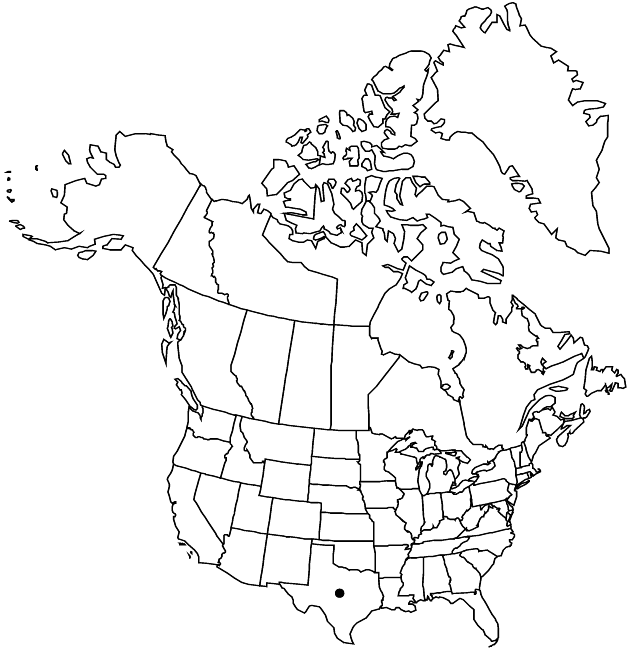Difference between revisions of "Perityle aglossa"
Smithsonian Contr. Knowl. 5(6): 107. 1853.
FNA>Volume Importer |
FNA>Volume Importer |
||
| Line 51: | Line 51: | ||
|publication year=1853 | |publication year=1853 | ||
|special status= | |special status= | ||
| − | |source xml=https://jpend@bitbucket.org/aafc-mbb/fna-data-curation.git/src/ | + | |source xml=https://jpend@bitbucket.org/aafc-mbb/fna-data-curation.git/src/f50eec43f223ca0e34566be0b046453a0960e173/coarse_grained_fna_xml/V19-20-21/V21_802.xml |
|tribe=Asteraceae tribe Heliantheae | |tribe=Asteraceae tribe Heliantheae | ||
|subtribe=Asteraceae (tribe Heliantheae) subtribe Peritylinae | |subtribe=Asteraceae (tribe Heliantheae) subtribe Peritylinae | ||
Revision as of 21:40, 16 December 2019
Perennials or subshrubs, 15–45 cm (in rock crevices); glandular-pubescent. Leaves: petioles 8–23 mm; blades ovate, subcordate, or subdeltate, 6–20 × 5–25 mm, margins irregularly lobed, laciniate, serrate-dentate, or shallowly 3-lobed. Heads borne singly or (2–3) in corymbiform arrays, 8–11 × 4–8 mm. Peduncles 10–25 mm. Involucres campanulate. Phyllaries 14–24, linear to linear-lanceolate, (5–)6–10 × 0.5–1 mm, apices long-attenuate. Ray florets 0. Disc florets 20–60; corollas yellow, often pink or purple tinged, tubes 1–1.7 mm, throats tubular, 2.1–3.2 mm, lobes 0.4–0.6 mm. Cypselae oblong to narrowly oblanceolate, (1–)2–3.2 mm, margins prominently calloused, densely ciliate; pappi of 1(–2) antrorsely barbellate bristles 3.5–6 mm plus crowns of hyaline, laciniate scales. 2n = 34.
Phenology: Flowering spring–fall.
Habitat: Limestone rock crevices
Elevation: 600–1300 m
Distribution

Tex., Mexico (Coahuila).
Discussion
Perityle aglossa is consistently discoid and occurs in limestone crevices along and near the Rio Grande in Brewster and Terrell counties. A combination of subtle characteristics including shallower leaf lobing, narrower shape and more attenuate apices of the phyllaries, shorter cypselae, and proportionally longer pappus bristles distinguish these plants from the rayless ones of P. parryi.
Selected References
None.